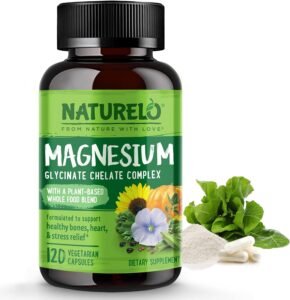Have you ever found yourself wondering, “Which vitamin helps lose belly fat?” If so, you’re not alone. Many people are on a quest to shed those extra inches around their waistline, and understanding how vitamins play a role in weight loss can be incredibly beneficial.
The Connection Between Vitamins and Belly Fat
Vitamins are essential nutrients that your body needs to function correctly. However, can they specifically target belly fat? To understand this, we need to take a closer look at how certain vitamins affect your metabolism, energy levels, and overall health—all of which contribute to weight loss.
How Vitamins Influence Weight Loss
Your metabolism is like a furnace that burns calories. Some vitamins can make this furnace burn hotter, leading to more calories burned and less stored as fat. Additionally, vitamins can help control your appetite, giving you the upper hand when it comes to portion control and resisting snacks.
Metabolism-Boosting Vitamins
Several vitamins are known to play a role in enhancing your metabolism. Here’s a brief overview:
| Vitamin | Role in Metabolism | Sources |
|---|---|---|
| B Vitamins | Help convert food into energy | Whole grains, meat, eggs, dairy products |
| Vitamin D | May improve insulin sensitivity | Sunlight, fatty fish, fortified foods |
| Vitamin C | Supports the adrenal glands in their role of managing stress | Citrus fruits, strawberries, bell peppers |
Vitamin B: The Energy Booster
Vitamin B is a complex of eight different vitamins that collectively boost your energy. When it comes to losing belly fat, Vitamin B12 often gets the spotlight.
Vitamin B12
Vitamin B12 helps your body convert food into glucose, which is burned for energy. If you have a deficiency, you might feel sluggish and less inclined to exercise.
Sources of Vitamin B12
Some excellent sources of Vitamin B12 include:
- Meat (especially liver and kidneys)
- Fish (especially sardines and salmon)
- Dairy products (milk, cheese, yogurt)
- Eggs
- Fortified cereals
Other B Vitamins
Apart from B12, other B vitamins such as B6 and B3 are also crucial. They work together to help your body metabolize carbohydrates, fats, and proteins, making them essential for anyone looking to lose belly fat.

Vitamin D: The Sunshine Vitamin
Vitamin D is another key player in the quest to lose belly fat. Beyond its well-known benefits for bone health, emerging research suggests it might also aid weight loss.
Insulin Sensitivity
Vitamin D helps improve insulin sensitivity, which allows your body to better manage glucose levels. Poor insulin sensitivity can lead to higher blood sugar levels, which are often stored as fat.
Sources of Vitamin D
- Sunlight exposure
- Fatty fish (like mackerel, tuna, and salmon)
- Fortified foods (milk, cereals)
- Supplements (after consulting a healthcare provider)
Recommended Daily Intake
The recommended daily intake for Vitamin D varies. Here’s a quick guide:
| Age Group | Recommended Daily Intake (IU) |
|---|---|
| Infants (0-12 months) | 400 IU |
| Children (1-18 years) | 600 IU |
| Adults (19-70 years) | 600 IU |
| Seniors (71+ years) | 800 IU |
Vitamin C: The Immunity Booster
Vitamin C is often hailed as an immunity booster, but did you know it can also help you lose belly fat?
Cortisol Control
Vitamin C helps to control cortisol levels. Cortisol is a stress hormone that can lead to increased belly fat when levels are consistently high.
Sources of Vitamin C
- Citrus fruits (oranges, grapefruit, lemons)
- Strawberries
- Bell peppers
- Broccoli
- Brussels sprouts
Vitamin C and Appetite
Vitamin C can also help regulate your appetite. A deficiency may lead to increased hunger, making it harder to stick to a calorie-controlled diet.

Other Essential Vitamins and Minerals for Weight Loss
While the main focus is often on Vitamins B, D, and C, other vitamins and minerals can also play a role in weight loss.
Magnesium
Magnesium is crucial for over 300 enzymatic reactions in your body, including those that help to break down food for energy.
Sources of Magnesium
- Leafy green vegetables (spinach, kale)
- Nuts and seeds (almonds, pumpkin seeds)
- Whole grains (brown rice, quinoa)
- Legumes (black beans, chickpeas)
Zinc
Zinc helps support a healthy metabolism and plays a role in hormone production, including those that manage hunger and fat storage.
Sources of Zinc
- Meat (beef, pork)
- Shellfish (oysters, crab)
- Legumes (lentils, chickpeas)
- Seeds (hemp seeds, sesame seeds)
Iron
Iron is essential for transporting oxygen in the blood, which is crucial for maintaining the energy levels required for exercise and an active lifestyle.
Sources of Iron
- Red meat
- Spinach
- Lentils
- Quinoa
- Iron-fortified cereals
Supplement vs. Food: The Best Way to Get Your Vitamins
Many people reach for vitamin supplements to aid their weight loss journey. However, it’s generally better to get your vitamins from a balanced diet rich in whole foods.
Why Food Is Better
- Better Absorption: Nutrients from whole foods are better absorbed by your body.
- Balanced Nutrition: Whole foods provide a complex mix of nutrients that work together to improve health.
- Safety: High doses of supplements can sometimes lead to toxicity.
When Supplements Are Necessary
- If you’re unable to meet your nutritional needs through diet alone.
- If you have a specific deficiency diagnosed by a healthcare provider.
- After consulting with a healthcare provider for advice tailored to your specific needs.

Lifestyle Factors: Vitamins Are Not a Magic Bullet
While vitamins can certainly aid in weight loss, it’s essential to remember that they are not a magic bullet. A balanced diet, regular exercise, and sufficient sleep are all crucial components of weight loss.
Importance of Diet
A balanced diet rich in vegetables, fruits, lean proteins, and whole grains will provide you with the essential vitamins and minerals you need for weight loss. Avoiding processed foods and sugars can also make a significant difference.
Exercise
Regular physical activity helps to boost your metabolism, burn calories, and build muscle—all of which contribute to losing belly fat. Combining cardiovascular exercises with strength training can offer the best results.
Sleep
Lack of sleep can disrupt hormonal balances and lead to weight gain. Aim for 7-9 hours of quality sleep per night to support your weight loss efforts.
Debunking Myths about Vitamins and Weight Loss
There are many misconceptions about how vitamins can influence weight loss. Let’s tackle some of them:
Myth: Taking More Vitamins Equals Faster Weight Loss
Taking mega-doses of vitamins won’t necessarily help you lose weight faster and can sometimes be harmful. Balance and moderation are key.
Myth: Vitamins Alone Can Melt Away Belly Fat
While vitamins can support weight loss efforts, they are not a substitute for a healthy diet and regular exercise. They are part of a broader lifestyle change.
Myth: Natural Supplements Are Always Safe
Natural doesn’t always mean safe. Always consult with a healthcare provider before adding any new supplement to your regimen.
Practical Tips: How to Incorporate These Vitamins Into Your Diet
It’s fairly straightforward to incorporate these essential vitamins into your daily routine through diet. Here are some tips:
Breakfast
- B Vitamins: Start your day with a bowl of fortified cereal or whole-grain toast with eggs.
- Vitamin C: Include a small glass of orange juice or a handful of strawberries.
Lunch
- Vitamin D: A salad with tuna or salmon can be a great choice.
- Magnesium: Add a handful of nuts or some leafy greens to your meal.
Snack
- Vitamin C: Munch on bell pepper slices or an apple.
- Zinc: Enjoy some roasted pumpkin seeds or a boiled egg.
Dinner
- Iron: Incorporate lean meats or legumes into your dinner.
- Magnesium: A side of steamed spinach or other leafy greens can complement your main dish.
Final Thoughts: Balance and Moderation Are Key
While certain vitamins can support your efforts to lose belly fat, they should be part of a broader, balanced approach to weight loss. Make sure you’re consuming a well-rounded diet, staying active, and getting enough sleep. Always consult with a healthcare provider before making significant changes to your diet or supplement regimen.
So, the next time someone asks you, “Which vitamin helps lose belly fat?” you’ll know that while vitamins can play a supportive role, they’re most effective when combined with a healthy lifestyle.




